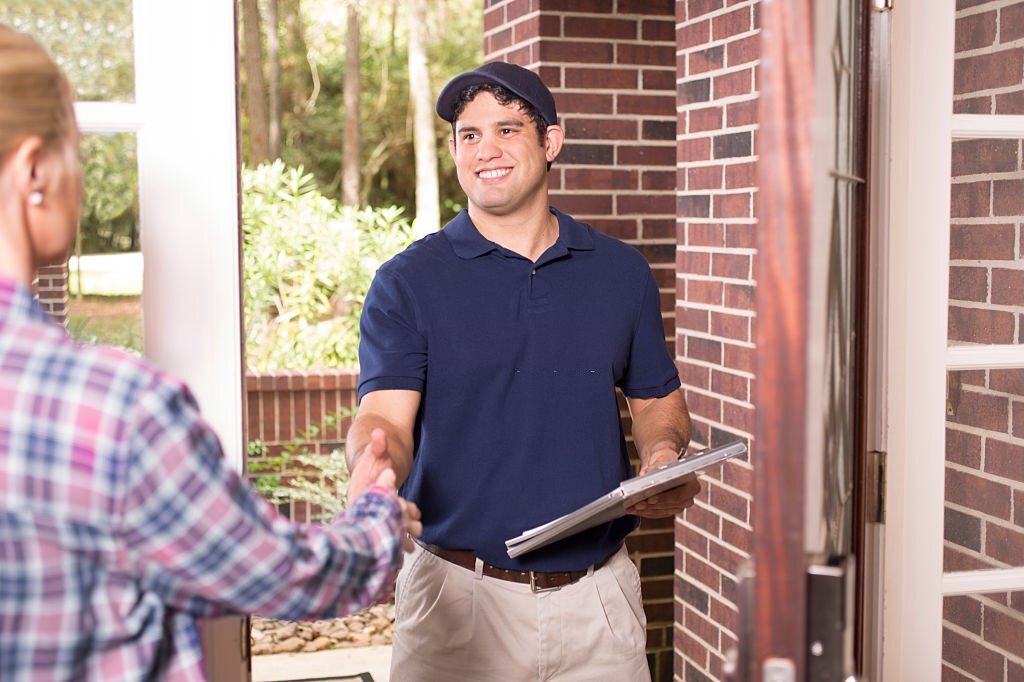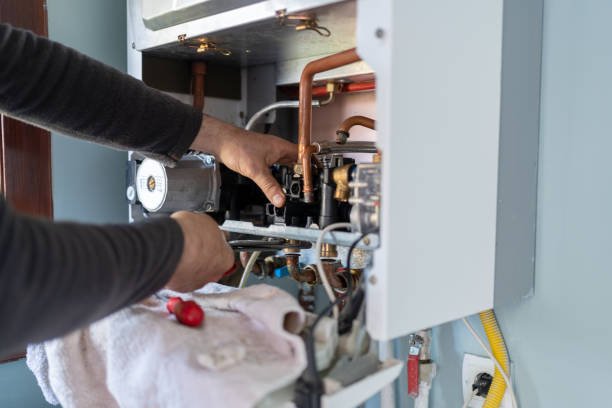Hey there, fellow Marylanders and soon-to-be Maryland property owners! If you’re in the market for a new home or thinking about selling your current one, you’ve probably heard about the importance of home inspections. But have you considered the advantages of using local Maryland home inspectors for your property? Whether you’re looking at a charming row house in Baltimore, a waterfront property in Annapolis, or a cozy cabin in the western mountains, working with inspectors who know the ins and outs of our diverse state can make a world of difference.
In this guide, we’ll explore why choosing a local inspector can be a game-changer for your real estate journey. So grab a crab cake (or your favorite Maryland treat), and let’s dive in!
Why Local Knowledge Matters in Home Inspections
Before we get into the specific benefits, let’s talk about why local knowledge is so crucial when it comes to home inspections.
Understanding Maryland’s Diverse Climate
From the coastal areas to the mountains, Maryland has a variety of microclimates that can affect homes in different ways. Local inspectors are familiar with:
- How humidity near the Chesapeake Bay can impact homes
- The effects of harsh winters in the western part of the state
- Potential issues with flooding in low-lying areas
Familiarity with Local Building Practices
Every region has its building quirks, and Maryland is no exception. Local inspectors know:
- Common construction methods used in different eras of Maryland homes
- Local building codes and how they’ve changed over time
- Typical issues found in homes of different ages and styles across the state
Knowledge of Regional Environmental Factors
Maryland has some unique environmental considerations that can affect homes. Local inspectors are aware of:
- Radon levels in different parts of the state
- Potential for termite infestations in various regions
- Issues related to coastal living, like salt air corrosion
Now that we’ve covered why local knowledge matters, let’s dive into the specific benefits of using Maryland home inspectors for your property.
Benefit 1: In-depth knowledge of Maryland-Specific Issues
One of the biggest advantages of using a local inspector is their familiarity with issues that are particularly relevant to Maryland homes.
Understanding Historic Homes
Maryland has a rich history, and many of our homes reflect that. Local inspectors understand:
- Common issues in colonial-era homes
- How to assess the condition of older building materials
- The importance of preserving historic features while ensuring safety
Navigating Coastal Challenges
For properties near the Chesapeake Bay or Atlantic coast, local inspectors are well-versed in:
- Signs of water damage or salt air corrosion
- Assessing the integrity of flood protection measures
- Evaluating the condition of marine-grade materials
Assessing Mountain Properties
In the western part of the state, local inspectors know what to look for in mountain homes, including:
- Proper insulation and heating systems for colder climates
- Potential issues with steep terrain, like erosion or foundation stability
- The impact of heavy snow loads on roofs and structures
Benefit 2: Familiarity with Local Regulations and Codes
Building codes and regulations can vary significantly from one area to another. Local Maryland home inspectors are up-to-date on:
State-Specific Requirements
- Maryland’s home inspection licensing requirements
- State-mandated disclosures and reports
County and Municipal Variations
- Differences in building codes between counties
- Local zoning laws and how they might affect property use or modifications
Historical Preservation Guidelines
- Special considerations for homes in historic districts
- Regulations regarding renovations of historic properties
Benefit 3: Network of Local Specialists
Local inspectors often have a network of trusted specialists they can refer you to if specific issues are found. This can include:
Local Contractors
- Roofers familiar with Maryland’s weather patterns
- HVAC specialists who understand the state’s diverse climate needs
Environmental Experts
- Radon mitigation specialists
- Mold remediation experts familiar with Maryland’s humidity challenges
Structural Engineers
- Professionals who understand the soil conditions in different parts of the state
- Experts in assessing older or historic structures
Having access to these local specialists can be invaluable if your inspection turns up any issues that need further investigation or repair.
Benefit 4: Understanding of Local Market Conditions
While home inspectors aren’t real estate agents, their local knowledge can provide context that’s valuable in the home buying or selling process.
Insight into Common Issues in Different Areas
- Typical problems found in homes of certain ages or specific neighborhoods
- How these issues might affect property values or insurability
Awareness of Regional Price Factors
- How certain features or issues might impact a home’s value in different parts of Maryland
- Understanding of which improvements are most valued in local markets
Knowledge of Local Development Trends
- Awareness of planned developments that might affect property values
- Understanding of how local economic factors might impact the housing market
Benefit 5: Personalized Service and Availability
Working with a local inspector often means more personalized service and better availability.
Flexible Scheduling
- Ability to accommodate your schedule more easily
- Quicker response times for urgent inspection needs
Follow-Up Accessibility
- Easier to reach out with questions after the inspection
- Potential for in-person follow-ups if needed
Long-Term Relationship
- Possibility of using the same inspector for future properties
- Building a relationship with someone who knows your home’s history
Benefit 6: Understanding of Local Environmental Hazards
Maryland has some unique environmental considerations that local inspectors are well-equipped to address.
Radon Testing
- Knowledge of high-risk areas for radon in Maryland
- Understanding of state-specific radon testing requirements
Lead Paint Assessment
- Familiarity with the prevalence of lead paint in older Maryland homes
- Understanding of state and local regulations regarding lead paint disclosure and remediation
Asbestos Identification
- Knowledge of common uses of asbestos in Maryland homes of different eras
- Understanding of safe assessment and disclosure practices
Benefit 7: Insight into Energy Efficiency
With Maryland’s varied climate, energy efficiency is a crucial consideration for homeowners.
Understanding of Local Energy Standards
- Familiarity with Maryland’s energy codes and how they’ve evolved
- Knowledge of energy-efficient features that are particularly valuable in our climate
Assessment of HVAC Systems
- Understanding of heating and cooling needs in different parts of the state
- Ability to assess the efficiency and appropriateness of systems for specific areas
Solar Panel Evaluation
- Knowledge of Maryland’s solar incentives and how they might affect home value
- Ability to assess the condition and efficiency of existing solar installations
Benefit 8: Familiarity with Local Pest Issues
Different regions of Maryland are prone to different pest problems. Local inspectors know:
Termite Risk Assessment
- Understanding of high-risk areas for termites in Maryland
- Knowledge of signs of termite damage specific to local species
Carpenter Bee Identification
- Familiarity with the prevalence of carpenter bees in wooden structures
- Ability to identify damage and recommend appropriate treatments
Rodent Infestation Evaluation
- Understanding of common entry points in Maryland homes
- Knowledge of local rodent species and their habits
Benefit 9: Understanding of Water and Moisture Issues
Given Maryland’s proximity to water and humid climate, local inspectors are experts in identifying water-related problems.
Basement and Foundation Assessment
- Knowledge of common water issues in Maryland basements
- Understanding of how local soil types affect foundation stability
Mold Identification
- Familiarity with types of mold common in Maryland’s climate
- Understanding of how local weather patterns contribute to mold growth
Roof and Gutter Evaluation
- Knowledge of how Maryland’s weather affects different roofing materials
- Understanding of proper gutter systems for handling local rainfall amounts
Benefit 10: Seasonal Considerations
Maryland’s distinct seasons each bring their own set of potential issues. Local inspectors understand:
Winter Preparedness
- Assessing insulation and weatherproofing for Maryland winters
- Evaluating systems for preventing ice dams and frozen pipes
Summer Cooling Needs
- Assessing air conditioning systems for Maryland’s hot, humid summers
- Evaluating ventilation systems for proper humidity control
Spring and Fall Maintenance
- Identifying potential issues with gutters and drainage for handling spring rains
- Assessing preparations for fall leaf accumulation and its impact on home systems
How to Choose a Local Maryland Home Inspector
Now that we’ve covered the benefits, here are some tips for choosing the right local inspector:
- Check for proper licensing: Make sure they’re licensed by the Maryland Department of Labor, Licensing and Regulation.
- Look for local experience: Ask how long they’ve been inspecting homes in your specific area of Maryland.
- Check for association memberships: Look for memberships in organizations like the Maryland Association of Home Inspectors.
- Read reviews: Look for reviews from other Maryland homeowners.
- Ask about their reporting process: Make sure they provide detailed, easy-to-understand reports.
- Inquire about their areas of expertise: If you’re looking at a specific type of property (like a historic home or waterfront property), ask about their experience with similar homes.
The Bottom Line
Choosing a local Maryland home inspector for your property comes with a host of benefits. From their in-depth understanding of regional issues to their network of local specialists, these professionals can provide insights that out-of-state or less experienced inspectors might miss.
Remember, a home inspection is more than just a checklist—it’s an opportunity to gain a deep understanding of the property you’re buying or selling. By choosing a local inspector, you’re not just getting a report; you’re getting a wealth of local knowledge that can help you make informed decisions about your property.
Whether you’re a first-time homebuyer in Bethesda, selling your family home in Frederick, or looking at an investment property in Ocean City, a local Maryland home inspector can be your guide to understanding the unique characteristics and potential issues of homes in our beautiful state.
So, as you embark on your real estate journey, consider the value of local expertise. After all, who better to inspect your Maryland home than someone who knows and loves the Old Line State as much as you do?



